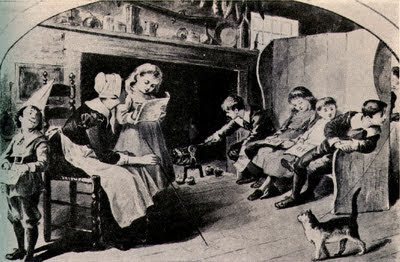In reading the excerpt from “Pedagogy of the Oppressed” by Paulo Freire, I am again in throes of processing such sensational pedagogical writing. My problems are: (1) the gross generalizations are laughable, and with many of the writings and discussions in such vein, I would like to see the data to back up claims that most educators are “Narrators” depositing information in “banks;” and (2) this movement seems much more apropos to our current K-12 system, as it is mandated by governmental regulation.
In either case, the instructors I know–both K-12 and at the university level–actively work against the stereotypical approaches of instructor-student dynamics in the classroom. I am well aware of how impressive my friends and acquaintances are, and I’m optimistic that this approach is more widespread than we give credit.
The excerpt is only chapter 2 from the book, so I am curious to read the rest and gain a broader perspective of the narrative. It’s a bit much to choke down much of what Freire writes in somewhat isolation–such as, “Education as the exercise of domination stimulates the credulity of students, with the ideological intent (often not perceived by educators) of indoctrinating them to adapt to the world of oppression.”1 In regards to this specific quote, I am also curious to know more about the time and place Freire is drawing from, because to apply this to 21st century pedagogy in the US seems far-fetched at best. While I am the first to criticize and call for the retraction of Common Core, I in no way think it is an exercise of domination over students/citizens.
Again, how does this apply to the university? The banking concept, at least, can apply pretty readily, but is it prevalent (as many would have us believe)? I would like to see data on that. I cannot think of an instance in my university studies in which student participation and contribution in the classroom was discouraged. Of course content must be given, and often in a lecture method. It is here that I come back to a common argument of mine in that half of a student’s education (if not more) is dependent on student responsibility. If the student needs more than what is given, approach the professor.
The practical reality of the University is that we have thousands of incoming students every year, and thousands of outgoing graduates, all with the goal of earning a degree that all but guarantees a given knowledge-set bestowed on the student. Instructors are in the position of making sure adequate and appropriate information is given and received in the classroom. There are going to be plenty of instances of banking this knowledge, and plenty of instances of going beyond merely lecturing to the student (dependent on the instructor, the students, class size, and material, among other variables).
Freire’s philosophical approach makes for a good read, and is certainly passionate, but I look forward to more practical approaches in aiding the learning process.
——————————
1 Freire, Paulo. Pedagogy of the oppressed.New York: Continuum Books, 1993.




